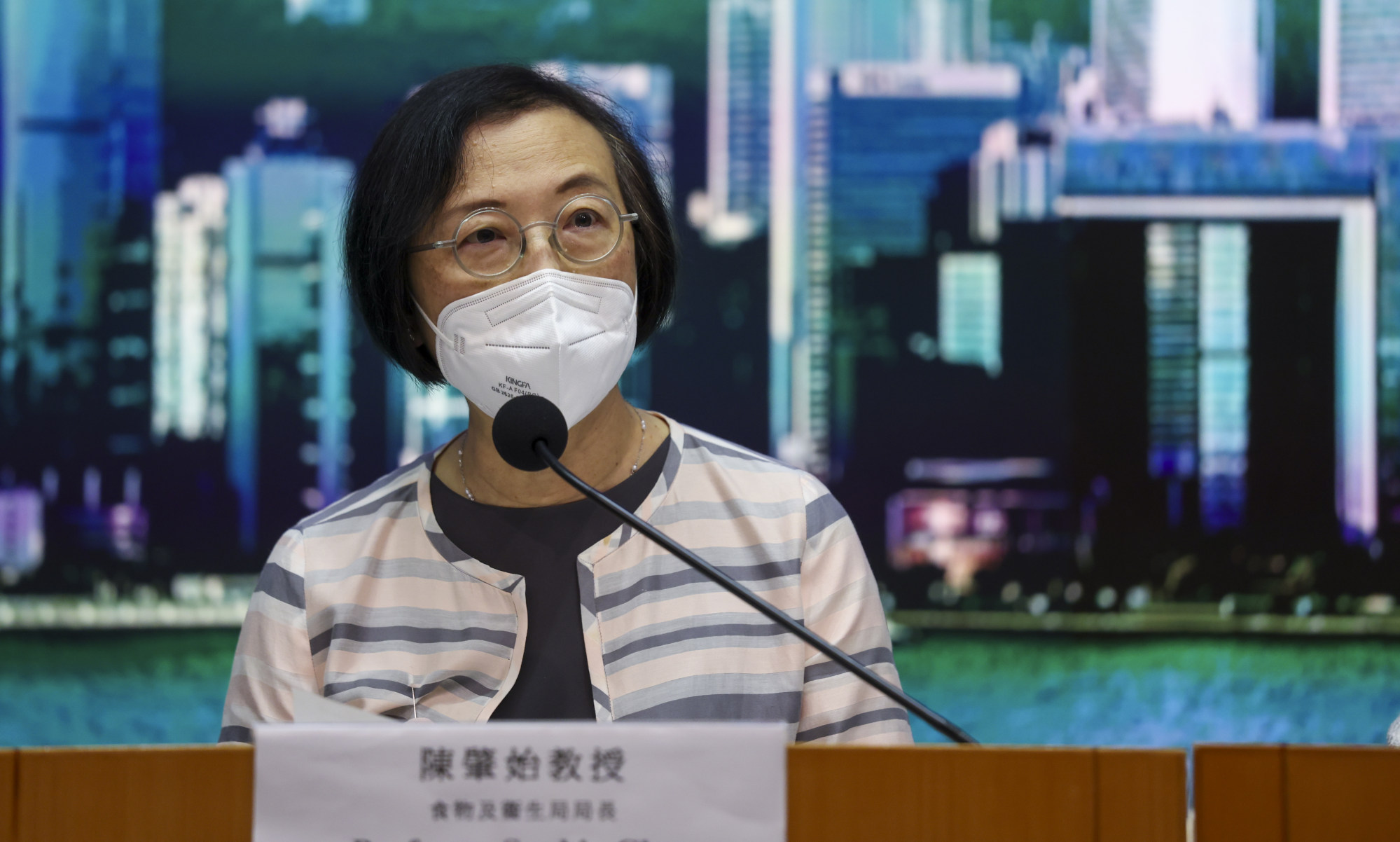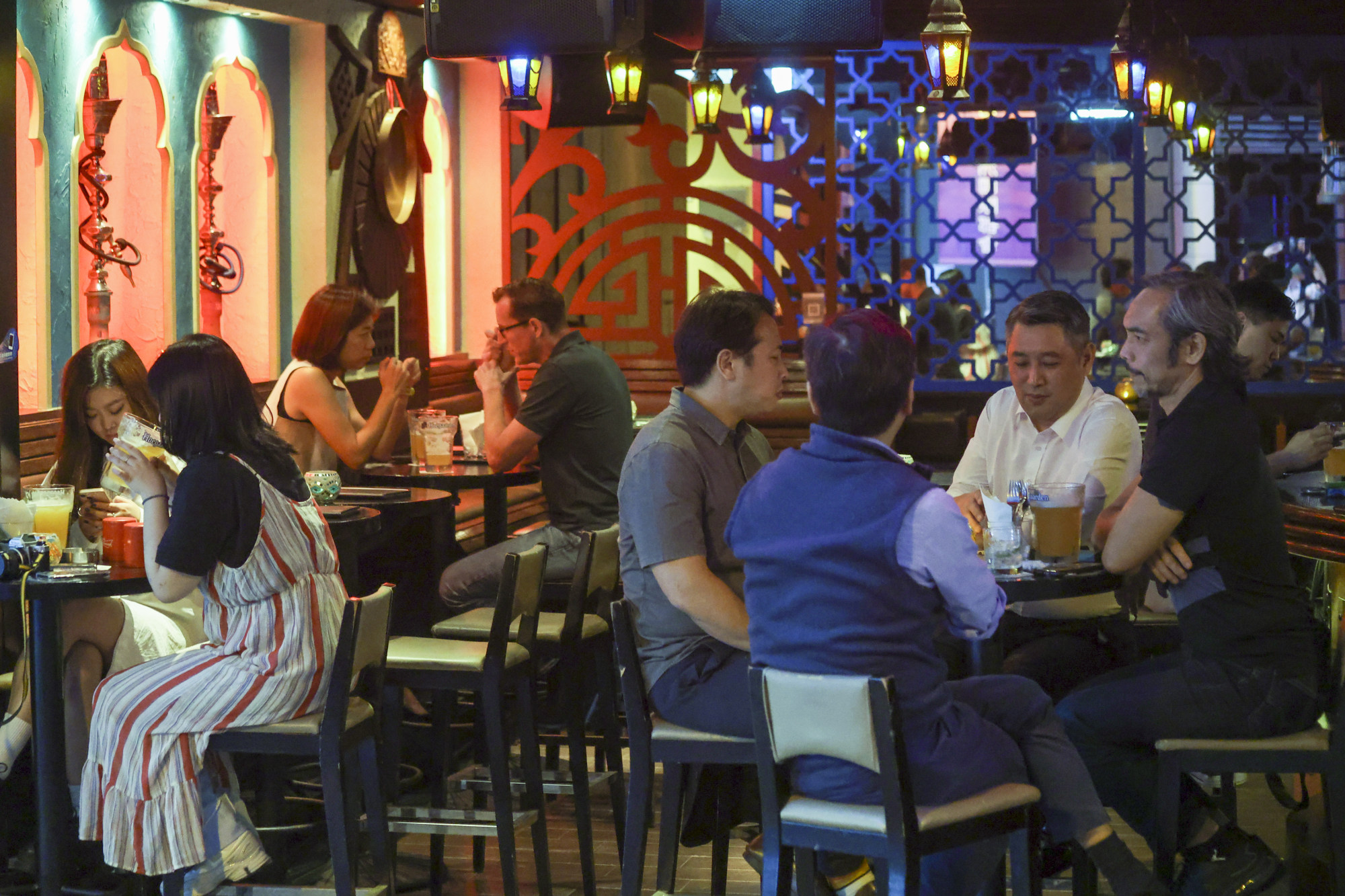
Coronavirus: Hong Kong reports over 1,000 cases for first time in more than 2 months as nightspot patrons cancel bookings ahead of new rule launch
- City reports 971 local coronavirus infections, 76 imported cases, marking first time daily total has surpassed 1,000 since April 13
- Health official says rise in cases different from surge during fifth wave with less serious infections, deaths reported due to increased vaccine uptake, herd immunity
Hong Kong has confirmed more than 1,000 coronavirus cases for the first time in over two months, while some bar and club patrons have cancelled reservations ahead of a new rule requiring negative rapid antigen test (RAT) results to enter such premises.
Health officials on Wednesday reported 971 local coronavirus infections and 76 imported cases, the first time the daily figure has surpassed 1,000 since April 13. The city also reported one more virus-related death.
Hong Kong’s overall tally stands at 1,221,808 cases, with 9,392 Covid-related fatalities.
Most coronavirus-related deaths in Hong Kong were ‘likely caused by Covid-19’
Dr Albert Au Ka-wing, principal medical and health officer at the Centre for Health Protection, however, said the recent rise in cases was different from the surge that occurred during the city’s fifth wave of infections.
“We have not seen any evidence at the moment that there is an explosive or geometrical rise [in cases]. Since early June to the present, there has been a gradual increase, unlike late February or early March, where there was a doubling trend every few days,” he said.
“Vaccination uptake has largely increased from levels during the fifth wave, when many people had been infected too, so there is a certain level of herd immunity in the community, so hospitalisations, severe and death cases have remained stable.”
Au also defended the change in how authorities presented the number of Covid-19 cases, as imported infections were now reported separately from the overall daily tally.
Calling it an “improvement” in the way figures were reported, Au said: “The main reason is the two figures reflect different things. Imported figures are very much influenced by our prevailing entry policies.
“If more people come back to Hong Kong, naturally imported figures will be high, but they do not have a direct relationship with the situation of community spread.”
Au said there were previously “many complicated figures” that might not help residents easily understand infection trends, but added the new reporting mechanism aimed to enhance communication of health risks.
Hong Kong officials to ‘undergo 3-day hotel quarantine’ for visit by state leaders
Health authorities had on Tuesday also said officiating guests and speakers would be allowed to take their masks off when addressing an audience at indoor events.
When asked if the new arrangements were related to the arrival of state leaders for events celebrating the 25th anniversary of Hong Kong’s return to Chinese rule, Au noted they were measures “based on public health grounds”.
Government pandemic adviser Professor David Hui Shu-cheong said the focus should be on the number of critical and severe cases, as well as deaths, instead of the surge in caseload.
“Hong Kong has built up a reasonable immune defence due to the rising vaccination rates,” he said, adding Singapore had “around 2,000 to 3,000 cases daily too, mostly mild”.
Respiratory medicine specialist Dr Leung Chi-chiu was similarly unfazed by caseloads topping 1,000. “However, we need to guard against penetration of [subvariants that can evade antibodies protection], especially BA.4 or BA.5, into [specific] premises, buildings and schools, as that could trigger a sixth wave through a network of superspreading events,” he said.

The increase in infections comes as a new requirement for the city’s nightspots is set to launch on Thursday. Customers must show staff proof that they are RAT-negative from a Covid-19 test done within the last 24 hours.
The policy is expected to last until June 29, with Secretary for Food and Health Sophia Chan Siu-chee pointing to several outbreaks connected to nightspots and how authorities were concerned patrons and operators of such premises had not complied with pandemic regulations.
But Ben Leung Lap-yan, charter president of the Licensed Bar and Club Association of Hong Kong, said authorities did not inform the sector about the policy change before the announcement, leaving operators confused over enforcement.
“This measure is targeting our industry, what have we done wrong? What are the rules for this policy? What should frontline staff do? Until now there’s no clear answer,” Leung told a radio show on Wednesday.
He said an additional burden would be imposed on staff checking customers’ RAT results and their authenticity, adding that many patrons had called to cancel bookings, choosing to go to restaurants instead.
“We are not blaming the customers who cancelled bookings, but we can’t do business like this,” he warned.

But Chan justified the measures on the same radio show, stating that many large-scale events, schools and homes for the elderly had conducted rapid tests daily.
She insisted the revised approach could protect the public.
Although she acknowledged there were limitations to the measure, Chan promised that officials would strengthen inspections.
University of Hong Kong microbiologist Ho Pak-leung said there had been six bar clusters involving some 350 cases since mid-May, roughly about 3 per cent of confirmed infections in the city over the same period.
On the new measure, he said it was hard to tell if it would be effective, as this depended on its execution.
Lawmaker Edward Leung Hei, of the Democratic Alliance for the Progress and Betterment of Hong Kong, also expressed concern that there was no way to verify the authenticity of photos of RAT results.
He urged authorities to adopt Singapore’s approach of setting up rapid testing sites close to nightlife districts, or to accept official PCR results only. He added that officials should give bar patrons and staff just one day, rather than the current two, to complete mandatory screening orders to ensure infections were identified earlier.
Hong Kong schools post most number of Covid cases since return to classrooms
Wednesday saw a resurgence in infections in residential care facilities, involving two homes for the elderly and two centres for the disabled.
Four employees and 10 residents tested positive for Covid-19. Au said all 10 residents came from the Christian Family Service Centre Sheung Chun House, a hostel in Kwun Tong for the mentally disabled.
Separately, six students from Pui Ching Middle School contracted Covid-19 following a 60-person gathering organised by its track and field team.
As the cluster involved the mutated BA.2.12.1 Omicron subvariant, about 10 people were subject to home quarantine. The Centre for Health Protection also suggested all participants avoid going back to school until June 19.
On Wednesday, 127 schools reported a total of 147 positive cases, comprising 135 students and 12 staff members. There were 48 schools with two or more cases over the past week.

Meanwhile, two bars reported new infections. Racks City on Wyndham Street saw one additional case, bringing the tally to 23 customers.
Five new infections were linked to FLM bar on Jervois Street, taking the total to 33 cases involving three employees and 30 customers.
Sophia Chan sought to reassure the public that the rising number of imported cases recently was still manageable. Such figures hit three-digits for the first time on Sunday, dropping to 76 cases on Wednesday.
“Even though there is an increase, most of them were caught in quarantine and didn’t enter the community. We also make [all arrivals] take PCR tests upon leaving quarantine on days nine and 12,” Chan said.
The health minister also told lawmakers at a Legislative Council meeting that authorities were ready to reopen community isolation centres, which are currently on standby, within 24 to 48 hours.
Additional reporting by Rachel Yeo
